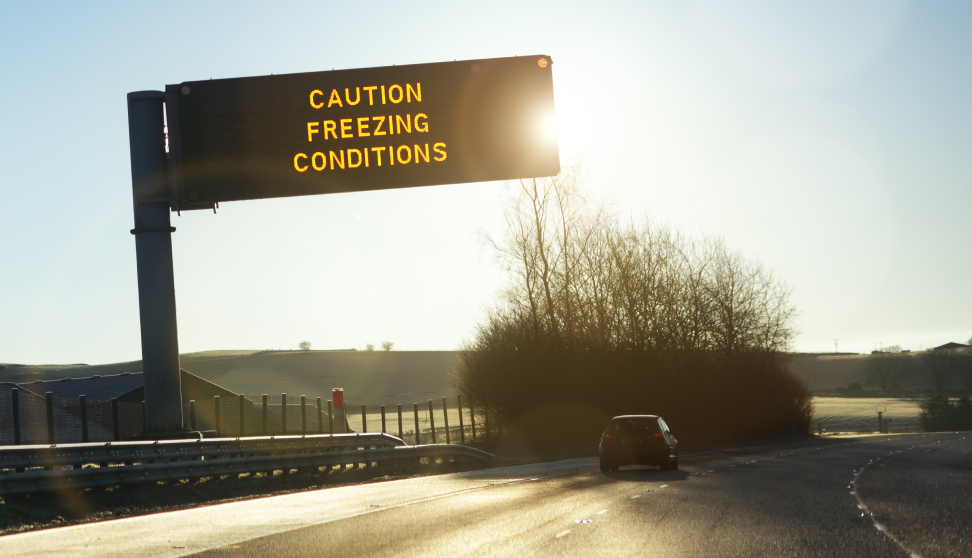What is Contract Hire?
First of all, let’s try and get our heads around what Contract Hire really is. In the UK, whenever you hear the term ‘car leasing’, the chances are that it’s Contract Hire being discussed. Simply because it’s far and away the most popular leasing product available.
Imagine wandering into your local car rental company and asking them to hire you a car or a van for a couple of days. Well, with Contract Hire, you’re simply asking the leasing company to hire you a vehicle for a much longer period of time - typically 3 or 4 years.
So Contract Hire is really just a long-term hire of a vehicle. You never own the vehicle, you’re just borrowing it for a while in return for a fee - the rental. You would normally pay the rental in monthly instalments and once you are finished with the vehicle, you stop paying, return it and the hire is finished.
The primary benefits of Contract Hire
Fixed Monthly Costs
Contract Hire delivers fixed cost motoring. The monthly rental is fixed and certain for the duration of the hire agreement, irrespective of what happens with interest rates, residual values or repair costs. Budgetary forecasting is much easier. This cost stability is one of the key benefits that Contract Hire delivers, and in these uncertain times, it’s a key reason it has become so popular – especially with government bodies.
Risk free motoring
With full maintenance included as part of your Contract Hire agreement, you are protected from fluctuations in repair costs and parts prices. Servicing and MOT costs are paid for, as well as unexpected repairs that would normally be a drain on finances. And because the leasing company owns the vehicle, they carry the residual value risk at disposal time.
Improve cash flow and gearing
When you purchase a vehicle, you can either pay for it outright or use your own credit lines. Whatever way you look at it, you’re tying up capital in an asset that tends to depreciate quite rapidly. With Contract Hire, you can release these funds and invest the money in other areas of the business, reduce cash flow or reduce debt.
As Contract Hire is an operating lease, your fleet assets do not appear in your balance sheet (although this will be changing soon!), which will improve your liquidity ratio, gearing and return on assets.
Expert vehicle management and lower administration
By outsourcing the management of your fleet to a leasing company, you are buying in expertise that could otherwise be expensive to employ. This leaves key managers within the business free to concentrate on other core duties. It also means that your administrative overhead can be reduced, as many of the day-to-day tasks can be dealt with by the leasing company.
Tax efficient fleet funding
If you buy a vehicle, you can reclaim 100% of the VAT if there is no private use of the vehicle. As soon as the vehicle is used privately, you can’t reclaim any VAT. With Contract Hire however, you can still reclaim 50% of the finance element and 100% of the service element of the rental.
And remember, a leasing company can reclaim all of the VAT when they purchase the car, making Contract Hire very attractive.
Depreciation and interest can be charged as a revenue expense.
No acquisition or disposal hassles
With Contract Hire, it’s up to the leasing company to source vehicles and arrange for their delivery to you. At the end of the hire, the leasing company will collect your vehicle, so you don’t get bogged down dealing with end of life disposals.
What services are included?
Although there may be some exceptions, a basic Contract Hire agreement will include the hire of a fully taxed vehicle. It’s up to the leasing company to pay for a new tax disc and send confirmation to you every year.
Beyond that, you get to choose the additional services you want to include. This is one of the strengths of Contract Hire and because the market is extremely mature, you’ll find lots of companies who can offer agreements that are tailor-made to suit your requirements.
As a starting point however, the first decision you have to make is whether you want to pay for your own servicing and maintenance costs or whether you want the leasing company to pay these costs and therefore include them in your rental.
Most people tend to choose full maintenance Contract Hire. This normally includes all routine service costs, breakdown cover, unplanned repair costs, MOT test costs and the cost of replacement tyres and exhausts. It might also include some provision for a temporary hire car.
However, if you’re comparing rentals between leasing companies, it’s important to always make sure that you’re comparing apples with apples - slight differences in service can make quite a difference in rental.
What additional services can be added to Contract Hire?
Additional services such as Accident Management, Licence Checking, Driver Training, Relief Vehicles, Downtime Management and Vehicle Logistics are among the many additional services that can be added to your Contract Hire agreements.
Modern leasing companies have expertise in a wide variety of vehicle management disciplines and so they can offer tailor-made, cost-effective fleet solutions, managed from one source. Just bear in mind that the way these organisations deliver these services is what makes them different from each other.
Summary
Contract Hire doesn't suit everyone, many organisations prefer to own their vehicles. You have to remember that you may incur end of lease charges, especially if you exceed your contract mileage. As you are renting someone else’s vehicle, if you treat it badly the leasing company will bill you for damage.
However, Contract Hire is ideal for organisations that are averse to risk and who are happy to buy in expertise and outsource the operation of the fleet to a specialist company. It protects you from unexpected fluctuations in cost and delivers stringent cost control and expert fleet management.
If you want to own your fleet and have total control of your vehicles, then Outright Purchase is for you. On the other hand, if you want to concentrate on running your own business and have someone else expertly manage and operate your cars and vans, then have a look at Contract Hire.



